The text and images are from the book:
Boulder County Sheriff’s Office – An illustrated History from 1861 – 2000
The Historical Book Committee has put together a history of the Boulder County Sheriff’s Office through pictures. There was no way that we could put an entire history of employees or events in one single piece of work. We have tried to portray the working environment of the Boulder County Sheriff’s Office since the County was started in 1861 through pictures that were readily available or submitted to us. Individual portraits were taken of current employees in the summer of year 2000. We have tried to minimize mistakes in identifying individuals or dates of the photos. Due to the time span, failing memories and paperwork that we could not confirm, there may be mistakes. We apologize if any mistakes are made.”
The Historical Committee



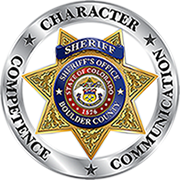
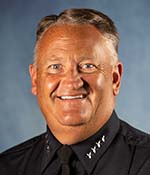
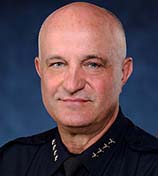
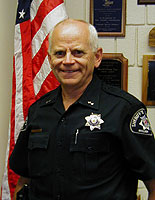 Was elected Sheriff in 1990, having stepped forward as a candidate on the Democratic Party’s ticket following Brad Leach’s decision to retire. He was re-elected in 1994 and 1998.
Was elected Sheriff in 1990, having stepped forward as a candidate on the Democratic Party’s ticket following Brad Leach’s decision to retire. He was re-elected in 1994 and 1998.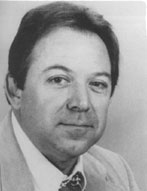 Was the first Democrat to hold the position in nearly two generations. He moved quickly to restore confidence in the organization, and gradually earned the public’s trust. He was re-elected to four subsequent terms before retiring in 1990.
Was the first Democrat to hold the position in nearly two generations. He moved quickly to restore confidence in the organization, and gradually earned the public’s trust. He was re-elected to four subsequent terms before retiring in 1990.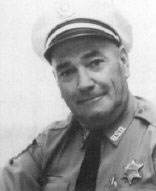 Joined the Boulder County Sheriff’s Office in 1963 as a “jailer”, having had prior experience in law enforcement. Born in Lindsey, Nebraska, in 1907, he became a charter member of the Nebraska Highway Patrol in 1937. There after, he served as chief of Police in Scottsbluff, Nebraska, and as a deputy with the Scottsbluff County Sheriff’s Department.
Joined the Boulder County Sheriff’s Office in 1963 as a “jailer”, having had prior experience in law enforcement. Born in Lindsey, Nebraska, in 1907, he became a charter member of the Nebraska Highway Patrol in 1937. There after, he served as chief of Police in Scottsbluff, Nebraska, and as a deputy with the Scottsbluff County Sheriff’s Department.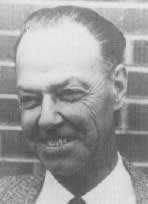 Was born in Northwood, Iowa, and moved with his family to Longmont in 1917. He was employed with George Richart’s trucking company when Richart was elected Sheriff in 1932, and was appointed as deputy shortly after Richart took office. Arthur ran for Sheriff in 1942 as a Republican following Sheriff Richart’s retirement.
Was born in Northwood, Iowa, and moved with his family to Longmont in 1917. He was employed with George Richart’s trucking company when Richart was elected Sheriff in 1932, and was appointed as deputy shortly after Richart took office. Arthur ran for Sheriff in 1942 as a Republican following Sheriff Richart’s retirement.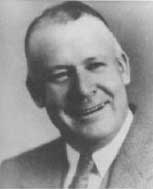 Was born on the family farm near Niwot, as a young man he worked in the coal and feed business, and then established a trucking firm. A solid reputation led to his selection as President of the Colorado State of Independent Truckmen’s Association.
Was born on the family farm near Niwot, as a young man he worked in the coal and feed business, and then established a trucking firm. A solid reputation led to his selection as President of the Colorado State of Independent Truckmen’s Association.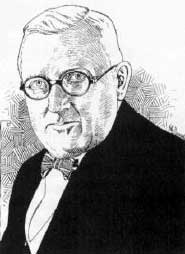 The election of 1922 was hotly contested, there were six announced candidates, including Sheriff Euler and two of his deputies. Robert V. Blum, a native of Longmont and prominent local businessman, was prevailed upon by the Democratic Party to run for Sheriff. In addition to his occupation as a clothier and president of the Commonwealth Industrial Bank, Blum served at various times as president of the Chamber of Commerce, Chief of Longmont’s Fire Department, and president of the local school board.
The election of 1922 was hotly contested, there were six announced candidates, including Sheriff Euler and two of his deputies. Robert V. Blum, a native of Longmont and prominent local businessman, was prevailed upon by the Democratic Party to run for Sheriff. In addition to his occupation as a clothier and president of the Commonwealth Industrial Bank, Blum served at various times as president of the Chamber of Commerce, Chief of Longmont’s Fire Department, and president of the local school board.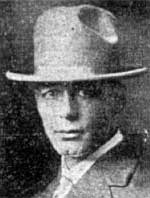 Was born in Warsaw, Illinois in 1868, and came to Boulder County with his family in 1872. He was a rancher and stock raiser, and prior to his service as Sheriff, held the position of deputy County Assessor.
Was born in Warsaw, Illinois in 1868, and came to Boulder County with his family in 1872. He was a rancher and stock raiser, and prior to his service as Sheriff, held the position of deputy County Assessor.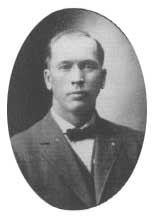 A farmer from Hygiene, made something of a career in local politics. Following his two terms as Sheriff, he served as deputy County Assessor and three terms as a County Commissioner. Sheriff Buster is noted for having been the first to “motorize” the Sheriff’s Office, in 1914 he purchased four Excelsior motorcycles for the deputies to use in performing their duties.
A farmer from Hygiene, made something of a career in local politics. Following his two terms as Sheriff, he served as deputy County Assessor and three terms as a County Commissioner. Sheriff Buster is noted for having been the first to “motorize” the Sheriff’s Office, in 1914 he purchased four Excelsior motorcycles for the deputies to use in performing their duties.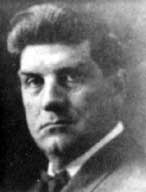 A Longmont druggist and member of the firm of Capp and McCreery, was elected to office in 1908. Sheriff Capp was undoubtedly a busy man. A decision by the county’s electorate in 1907 to enact a local ban on the sale, production and/or consumption of alcoholic beverages (3.2 beer being excepted) went into effect in 1909, anticipating national Prohibition by seven years. More significantly, a protracted coal miner’s strike (1910-1914) put hundreds of local miners out of work and was the source of much tension and violence.
A Longmont druggist and member of the firm of Capp and McCreery, was elected to office in 1908. Sheriff Capp was undoubtedly a busy man. A decision by the county’s electorate in 1907 to enact a local ban on the sale, production and/or consumption of alcoholic beverages (3.2 beer being excepted) went into effect in 1909, anticipating national Prohibition by seven years. More significantly, a protracted coal miner’s strike (1910-1914) put hundreds of local miners out of work and was the source of much tension and violence.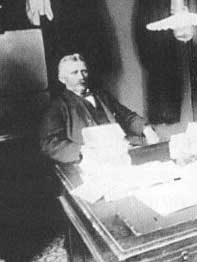 Served two terms as County Sheriff, a resident of Longmont, he had worked previously as a jeweler and ran the local telephone exchange. He subsequently served the City of Boulder as Chairman of the town’s Fire and Police Committee.
Served two terms as County Sheriff, a resident of Longmont, he had worked previously as a jeweler and ran the local telephone exchange. He subsequently served the City of Boulder as Chairman of the town’s Fire and Police Committee.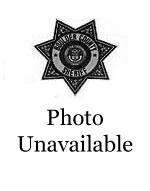 Was born in Delaware in 1846, his nickname commemorated his service during the Civil War as an officer. He married his wife Flora 1889, and like most of his predecessors, was involved in Boulder County’s mining industry, working a claim near Jamestown.
Was born in Delaware in 1846, his nickname commemorated his service during the Civil War as an officer. He married his wife Flora 1889, and like most of his predecessors, was involved in Boulder County’s mining industry, working a claim near Jamestown.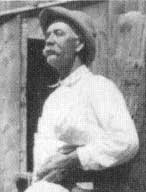 Was born in New Sharon, Maine where his father Zachariah served six years as Franklin County’s undersheriff and six years as sheriff.
Was born in New Sharon, Maine where his father Zachariah served six years as Franklin County’s undersheriff and six years as sheriff.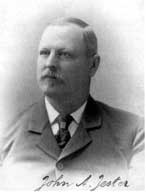 Was born and raised on a farm in Illinois and found his way to Colorado in April, 1873.
Was born and raised on a farm in Illinois and found his way to Colorado in April, 1873.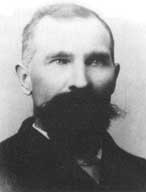 Was born in Gilsum, New Hampshire, and moved to Boulder as a young man. A prominent businessman, he operated a meat market at 13th and Pearl Streets in the 1870’s and was a partner in mining and ranching operations at the Walker Ranch on Flagstaff Mountain in the 1880’s.
Was born in Gilsum, New Hampshire, and moved to Boulder as a young man. A prominent businessman, he operated a meat market at 13th and Pearl Streets in the 1870’s and was a partner in mining and ranching operations at the Walker Ranch on Flagstaff Mountain in the 1880’s.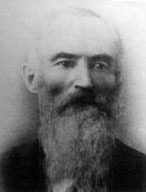 John Ellingham emigrated from Illinois in 1860, he was a man of many interests. He worked as a ranch hand, a mason, did some mining all across the west, freighted goods by wagon across the plains, in 1876 he was made Superintendent of the Caribou mines.
John Ellingham emigrated from Illinois in 1860, he was a man of many interests. He worked as a ranch hand, a mason, did some mining all across the west, freighted goods by wagon across the plains, in 1876 he was made Superintendent of the Caribou mines.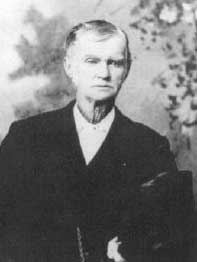 He came to Colorado in 1862 from New York. He quickly established himself as a leading citizen and was intimately associated with the public spirited enterprises and boosterism that epitomized early Boulder County.
He came to Colorado in 1862 from New York. He quickly established himself as a leading citizen and was intimately associated with the public spirited enterprises and boosterism that epitomized early Boulder County.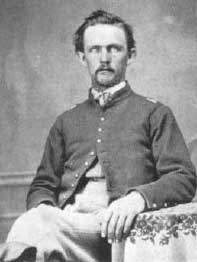 He was elected Sheriff in 1863, but absented himself from office in order to take a Captain’s commission with the Third Colorado Volunteer Cavalry, called upon by Territorial Governor John Evans in 1864 to suppress Indian uprisings. In his capacity as Captain of Company D, Nichols participated in the infamous Sand Creek Massacre, on November 29, 1864.
He was elected Sheriff in 1863, but absented himself from office in order to take a Captain’s commission with the Third Colorado Volunteer Cavalry, called upon by Territorial Governor John Evans in 1864 to suppress Indian uprisings. In his capacity as Captain of Company D, Nichols participated in the infamous Sand Creek Massacre, on November 29, 1864.